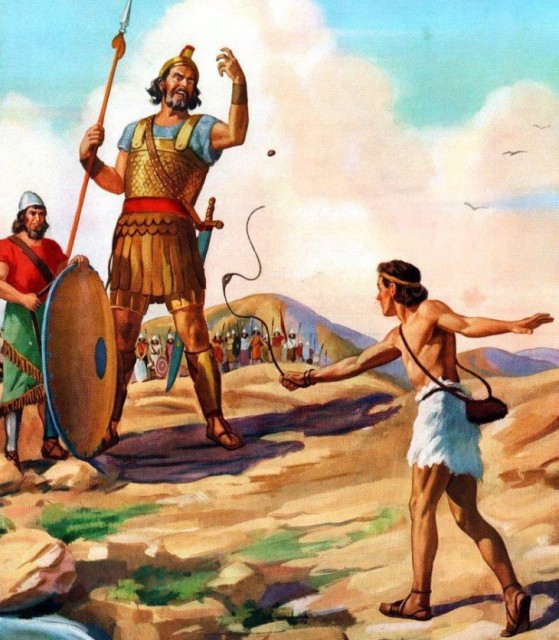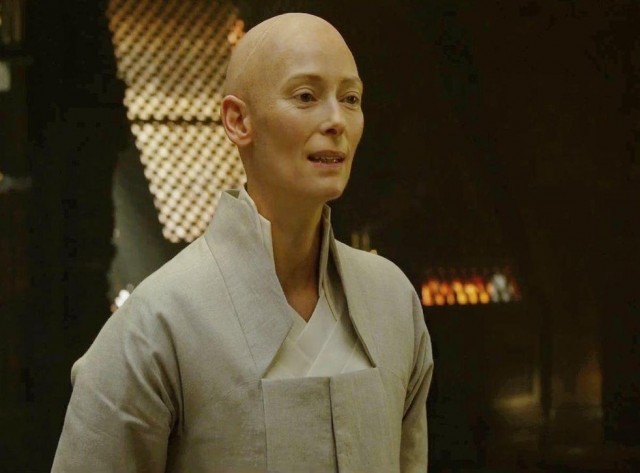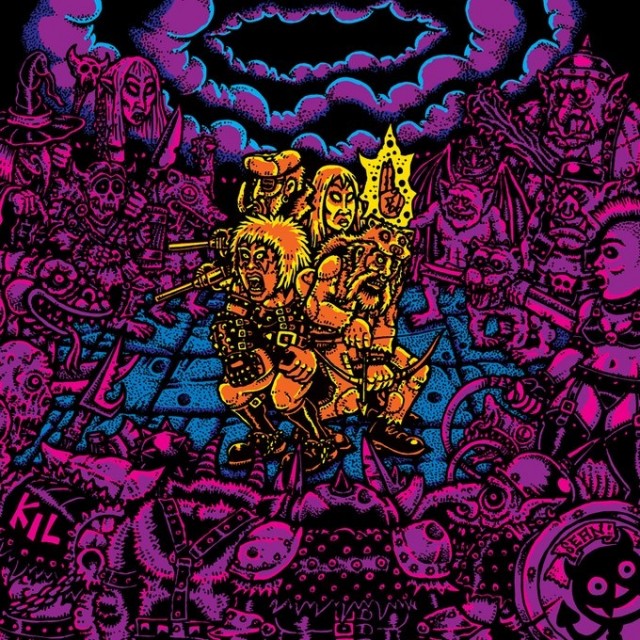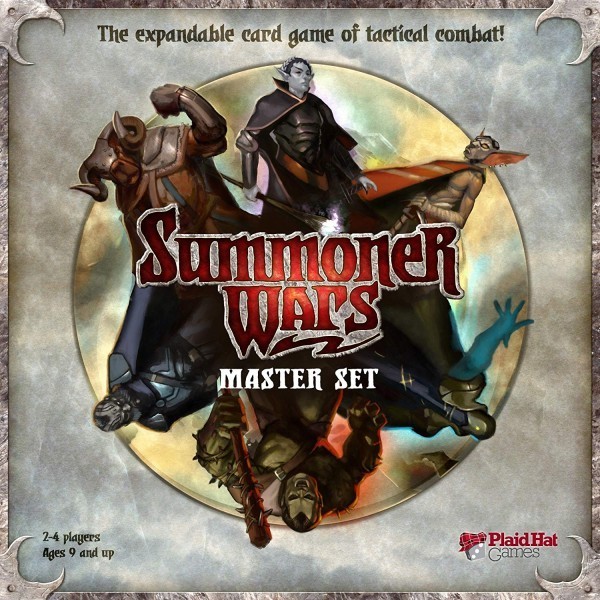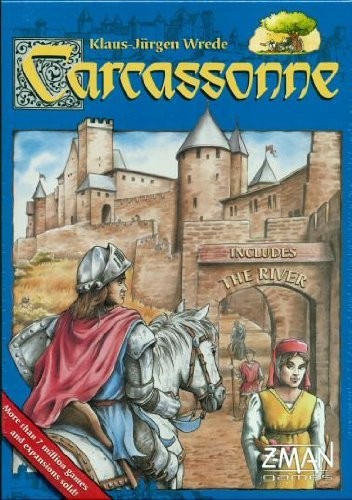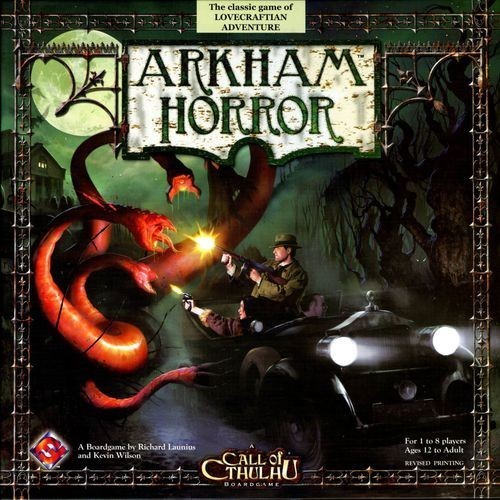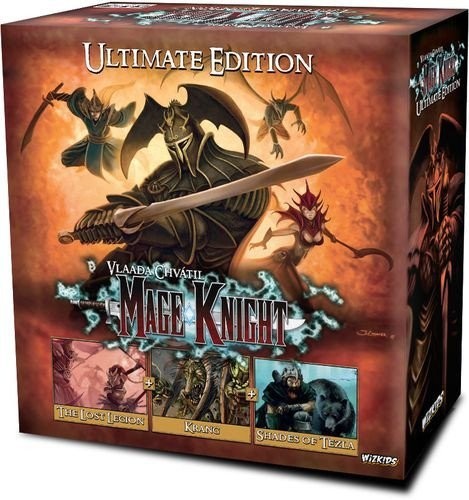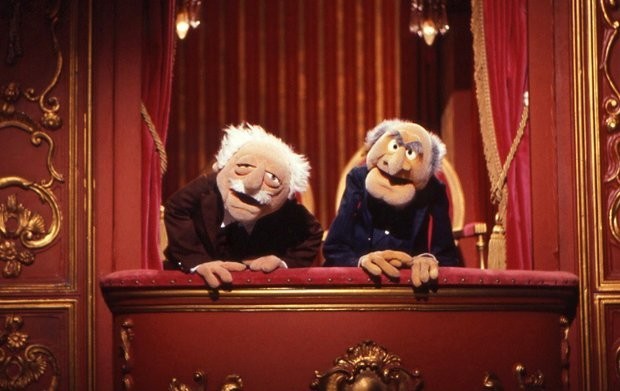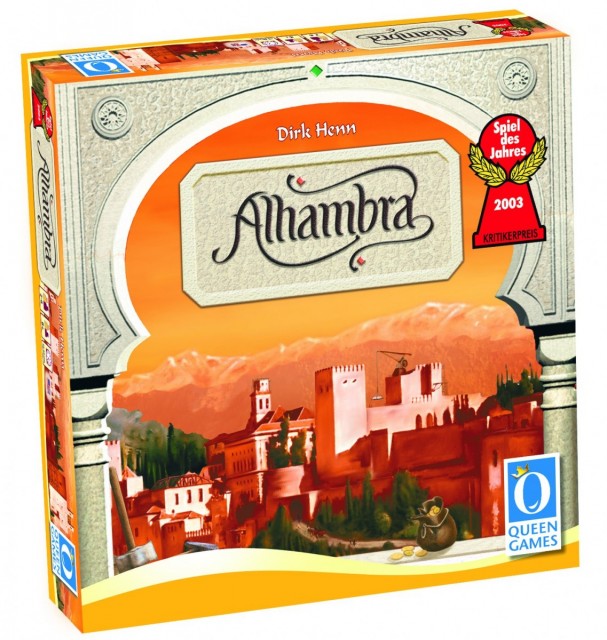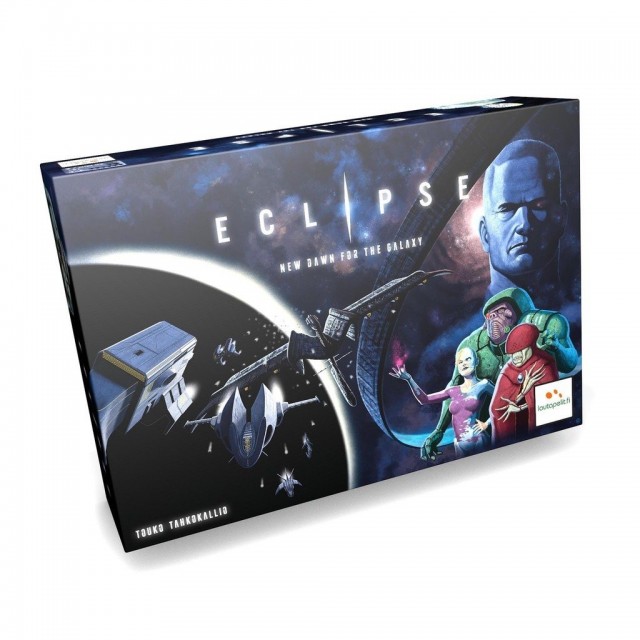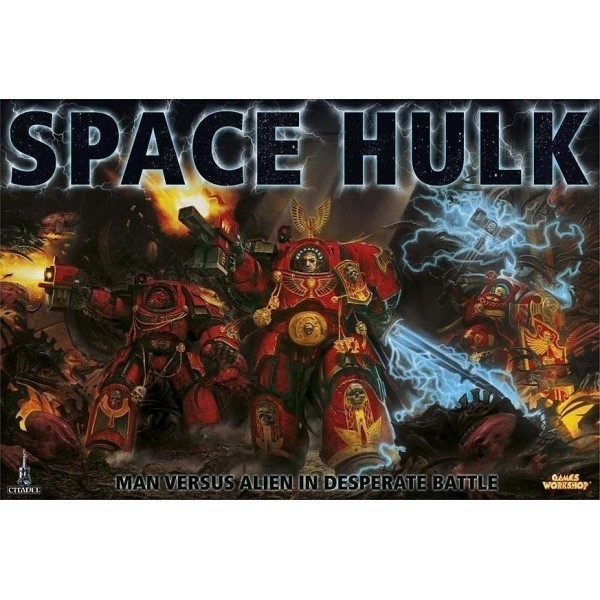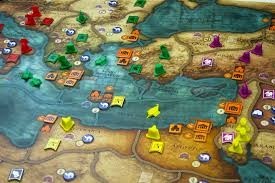
I have a real thing about the word "innovation". In one place I worked it was a massive management buzzword that got bandied about so much that it lost all meaning and caused one of my fellow co-workers to make the insightful point that no-one ever wants un-innovative things, so why bother pointing out the whole time that we ought to be striving for it when that should be bloody obvious. It is therefore unsurprising that I didn't react brilliantly to Michael Barnes' last Gameshark piece about creativity in boardgaming design, in which the word innovation and derivates thereof are used no less than 13 times, if you include the introduction. But in truth it wasn't just lexical pedantry that put me off - I disagree with much of what was said in that piece, so I'm going to abuse my own space on F:AT to offer some counter arguments. But before I do I'm off to fetch a thesaurus so that I can look up some alternatives to the dreaded "I" word.
The problems start right at the beginning of the argument, with a comparison between computer game design and board game design. This
is a misleading and invalid comparison on three levels. Firstly a board game designer is constrained in ways a computer game designer is
not, largely by the matter of physical components. There are various things it's easy to do in a computer which are either extremely
difficult or extremely clunky to do in a boardgame - track large amounts of hidden information, for example. Beyond that a computer is
simply a much more flexible medium than a board game since it offers vastly more ways to input information and receive feedback - touch 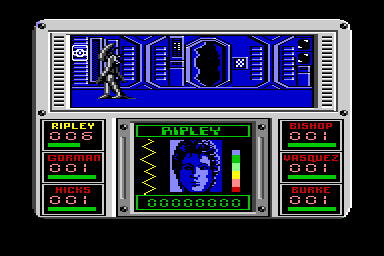 screens, traditional controllers, light guns, motion-tracking technology such as that seen on the Wii and so on and so forth. The second
flaw in this argument is related to the first, and that's that computer game design is linked directly to the processing capacity of
computers - game designers get to be innovative because with each new generation of computers they have more possibilities and more toys
to play with, where the boardgame designer is still harnessed to boards, cards and dice. The third and final flaw is that computer game
design is in fact nowhere near as clever as it's made out to be. I can remember playing a game called Aliens on my 48k ZX Spectrum when I
was a teenager which was the spiritual ancestor of all the modern 3D FPS games, only Aliens happened to be crap because the
computer technology simply wasn't capable of delivering that sort of experience in a playable manner at that time. All modern genres of
computer game have their roots in the 80's golden age of videogaming, it's just that most of those that are directly comparable to the
current generation have been forgotten because they failed as design experiments due to technological constraints.
screens, traditional controllers, light guns, motion-tracking technology such as that seen on the Wii and so on and so forth. The second
flaw in this argument is related to the first, and that's that computer game design is linked directly to the processing capacity of
computers - game designers get to be innovative because with each new generation of computers they have more possibilities and more toys
to play with, where the boardgame designer is still harnessed to boards, cards and dice. The third and final flaw is that computer game
design is in fact nowhere near as clever as it's made out to be. I can remember playing a game called Aliens on my 48k ZX Spectrum when I
was a teenager which was the spiritual ancestor of all the modern 3D FPS games, only Aliens happened to be crap because the
computer technology simply wasn't capable of delivering that sort of experience in a playable manner at that time. All modern genres of
computer game have their roots in the 80's golden age of videogaming, it's just that most of those that are directly comparable to the
current generation have been forgotten because they failed as design experiments due to technological constraints.
I'm also going to pick apart the admired metaphor of re-writing popular albums. Anyone who can say that no-one ever wanted to re-record the White Album but with a track changes here and there and a different running time has obviously never made a mix tape or CD of their own to listen to in the car. I once made a ninety-minute tape which had all my favourite Bob Dylan songs on one side and all my favourite Cat Stevens songs on the other. Heresy? Possibly, but it proved such a popular combination of songs that within a fortnight virtually all by friends had taken a copy. There are few enough classic albums in the world that have no filler at all, so what's so bad about music fans taking what they like best from one artist and combining it with what they like best from another into a whole that they, personally, find more satisfying than the originals. That's all that board game designers are doing when they take a concept that they appreciate and try to tweak it to fit with their idiom of what makes a good game. What's bad and sad about this is not that it happens, but the fact that there are enough people willing to pay hard cash for the result to make it into a business proposition rather than something which entertaining bored game designers do to entertain and improve themselves.
The fact of the matter is that creating something new by recycling and recombining older concepts and ideas is probably about the best that we can hope for in terms of vicissitude, especially in a design medium like board games which is heavily constrained by its own idiom. Indeed it's about the best approach to creativity in any medium, not just game design. It's something that should be encouraged and celebrated, not dismissed as being a second-rate approach to creativity. Look at some of the examples offered. Take Magic: The Gathering: there's a host of older games from which it has borrowed ideas and concepts including famous titles such as Wiz-War, Titan and Kings & Things and it stole its marketing model from the century old concept of sports-based trading cards. The clever, new thing that Richard Garfield did was to take all these things and rework them into something new - exactly what we're being told is naughty and bad and not, in fact, clever or new at all. Settlers of Catan has its roots in a slew of much longer and more complex civilization games and became what it currently is after a fierce pruning of mechanics and ideas to try and cut down on the amount of rules and play time. I could go on, but you've already got the point: pretty much every game I can think of can be seen as being a recycling of old ideas and in most cases, the most creative thing you can point to is the recombination of a concept common outside the boardgaming community into a gaming mechanic. But to re-iterate, this is not a criticism - it's the only route to new and exciting games.
The idea that recent years have seen a slowdown in the amount of unusual games appearing on the marketplace is also, I think, a nonsense. The last couple of years have seen some very unusual games from some very talented designers hit the shelves. Through the Ages is a game that has no direct precedents for a start. My current darling of the moment, Imperial is another game which recombines tried-and-trusted mechanics into something very fresh. Ca$h and Gun$ offers something new for casual and/or social gamers. In terms of wargames I think that what we're seeing is the thin end of a wedge in terms of evolving designs: clever new ideas take time to catch on. Napoleons Triumph, for example, while based on the rightly celebrated Bonaparte at Marengo nevertheless raised the bar in terms of team play and psychological bluff. Field Commander: Rommel has a breathtakingly clever approach to creating a strategically demanding solo game. I've come up for five off the top of my head, and I don't have a particularly wide exposure to the new releases that come out each year. The perception that we're in an age where creative design is tailoring off comes, I think, more from the increasing volumes of derivative crap that we get swamped with each year than from an actual reduction in clever game design. Fresh, unusual games are always going to be in a tiny minority, because creating something fresh and unusual is hard. And the price we pay for getting things that are clever and new is putting up with designers coming up with a morass of derivative games because some measure of derivation is essential in creating something new. What we don't have to do is what's happening at the moment - keep on buying the overly-derivative rubbish - because that just encourages laziness and ensures that the krap-to-kwality ratio keeps on tipping in favour of the ordure.
The fact that more and more people want to get involved in game design and testing is, again, something good and not something bad. The more people who stick their fingers into this particular pie, the more chances we have of someone managing to create some truly delicious pie. More ideas is grist to the mill, as is more feedback from more talented and experienced gamers acting as playtesters. The internet can be both devil and angel in this scenario providing new ways for people to game together and collaborate over game designs whilst at the same time encouraging homogeneity and group-think. Again, as with the supposed lack of creative game, a real problem has been identified but the alleged cause is wrong. The issue here is with a culture in which designers and well-known gamers are treated as semi-celebrities and people seem to have conflated common politeness with mute agreement, not with the explosion of an interest in design or with people wanting to do their own takes on existing ideas. Take my own experiences: I'm currently playtesting a fan-made variation of Twilight Struggle in which the theme is the political collapse of European Communism rather than the Cold War. A first read through the rules confirms that it looks a lot like Twilight Struggle. Actually playing it reveals that the changes the designer has made have had a very large impact on game play. And so far I've not been afraid to offer criticism where I've felt it's due, so long as I was able to articulate a credible alternative approach, and he's not been slow in telling me when he thinks I'm right and when he thinks I'm wrong. Both the designer and I are having a fun game, and slowly he's improving and further differentiating his design from it's source material and into something new and exciting. He saw Twilight Struggle, and went "me too" and created the basics of a game which isn't afraid to show its inspiration while introducing fresh concepts. Where's the problem?
Another thing I find puzzling is the idea that one has to seek challenge and innovation (there's only six alternatives in my thesaurus, okay?) from the mechanics in a game. A basic tenet of all the arguments I've made about game design over the last couple of years in the idea that what we get the most mileage out of in playing a game isn't the game itself but the other people playing it. By this line of reasoning what we need are not games that present us with new mechanics but simply games which present us with mechanics which are open enough to give us many, many play sessions of exploration as we try out new strategies and counter-strategies against other, sharp game players, in an ongoing evolutionary arms-race type process. This is why Diplomacy is still rightly regarded as an absolute classic over five decades after it was first published, while the supposedly innovative Magic started to hit something of a backlash after only a few years. What's so great about there always having to be a "next big thing" when we should be demanding more mileage out of yesterdays' big things? Have we really become so shallow and restless that we have to constantly demand the new and shiny when there's so much of value left to explore in the old and worn?
Let's be clear here. I am not - obviously - advocating that no-one should ever do anything new in game design. What I'm doing is pointing out that the path to the new is always littered with failed experiments and that we have no business demanding the one without the other. A modicum of tedium is something we have to put up with as the price for great leaps forward. "Me too" is a symptom is something healthy, not a problematic disease, because out of all the people who say "Me too", one of them will say "Me too, but ...". And therein lie the seeds of greatness.
 Games
Games How to resolve AdBlock issue?
How to resolve AdBlock issue? 
